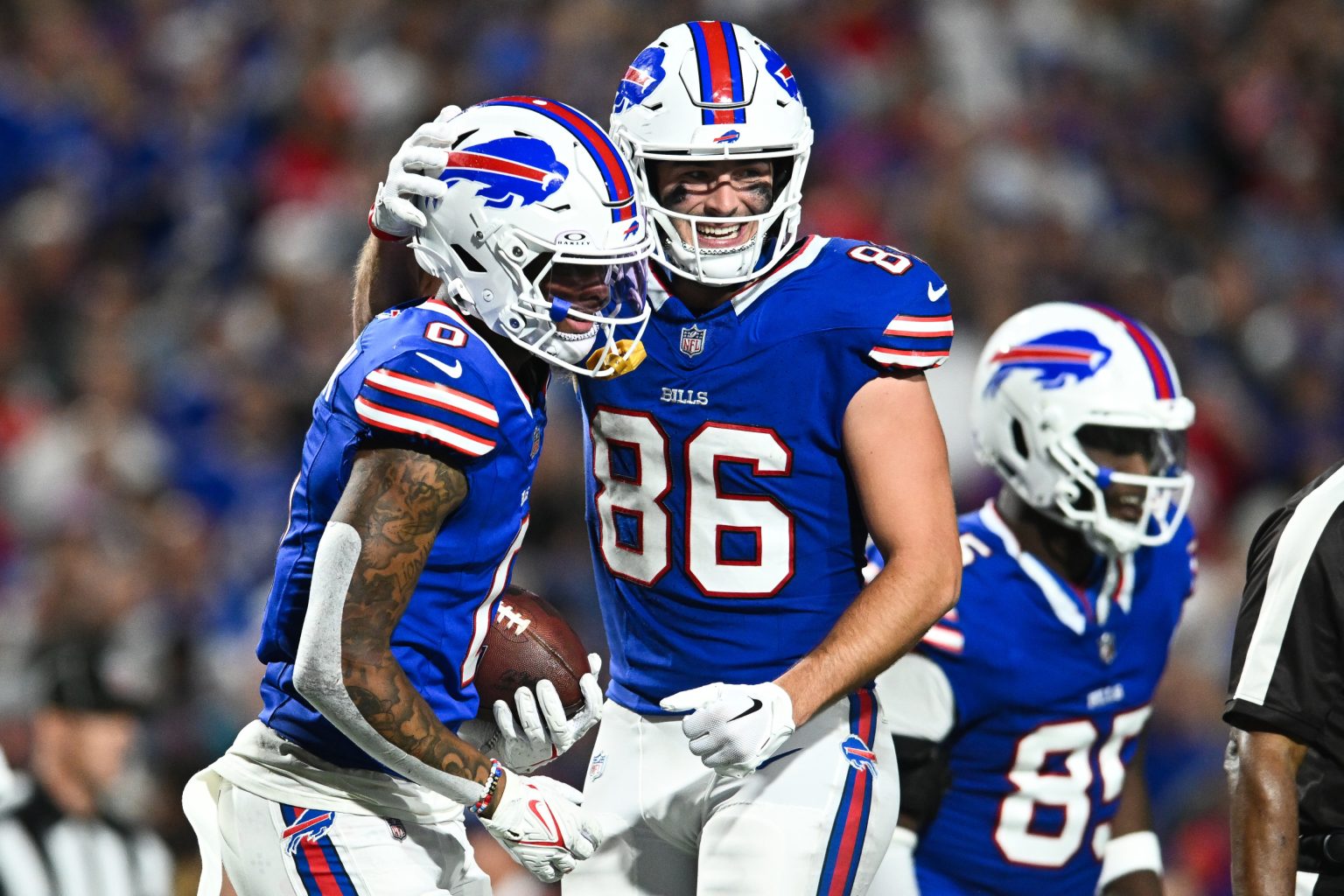Keon Coleman and Dalton Kincaid’s Absence Impacts Buffalo Bills’ Offensive Strategy in Week 14 Clash Against Los Angeles Rams
The Buffalo Bills’ offensive lineup will be noticeably different in their Week 14 matchup against the Los Angeles Rams, with the absence of wide receiver Keon Coleman and tight end Dalton Kincaid due to injuries. Coleman, sidelined by a wrist injury, and Kincaid, still recovering from a knee injury despite returning to practice, will be key absences for the Bills’ passing game. Their unavailability forces offensive coordinator Ken Dorsey to adjust his game plan, impacting quarterback Josh Allen’s options and potentially shifting the overall offensive approach. The Bills will need to rely on other receivers and tight ends to step up and fill the void left by these two promising players. The impact of their absence will be a key storyline in the game, affecting the Bills’ ability to move the chains and put points on the board.
Keon Coleman’s absence removes a dynamic deep threat from the Bills’ receiving corps, limiting their ability to stretch the field vertically. Coleman’s speed and athleticism create opportunities for big plays, and his absence will require other receivers like Stefon Diggs, Gabe Davis, and Khalil Shakir to shoulder more responsibility in the passing attack. This may necessitate adjustments in route combinations and play-calling, potentially shifting towards shorter, quicker passes to compensate for the lack of a consistent deep threat. The Bills may also incorporate more running plays to control the clock and keep the Rams’ defense honest.
Dalton Kincaid’s absence weakens the Bills’ tight end group, impacting their ability to exploit mismatches against linebackers and safeties. Kincaid’s reliable hands and route-running prowess make him a valuable target for Allen, particularly in the intermediate passing game. Without Kincaid, the Bills may need to rely more heavily on two-tight end sets featuring Dawson Knox, potentially limiting their offensive flexibility. They may also increase the involvement of running backs in the passing game to compensate for the loss of Kincaid’s receiving abilities.
The absence of both Coleman and Kincaid places added pressure on quarterback Josh Allen to execute effectively and distribute the ball efficiently among the remaining receiving options. Allen will need to rely on his experience and improvisational skills to adjust to the changing personnel and find open receivers. He may also need to utilize his legs more frequently, scrambling for yardage when passing lanes are closed. The offensive line will also play a crucial role in protecting Allen and providing him with sufficient time to make plays.
The Rams’ defense will undoubtedly seek to exploit the Bills’ depleted receiving corps, potentially employing more aggressive coverage schemes to challenge the remaining receivers and disrupt the timing of the Bills’ passing attack. They may also focus on stopping the run, forcing Allen to throw the ball more often and into tighter coverage. The Bills’ offensive line will need to be prepared for increased pressure and strive to maintain a clean pocket for Allen.
Despite the challenges posed by the absences of Coleman and Kincaid, the Bills still possess a talented roster and a capable coaching staff. They will need to draw upon their resilience and adaptability to overcome these setbacks and execute their game plan effectively. The game against the Rams presents an opportunity for other players to step up and contribute to the team’s success, showcasing their abilities and solidifying their roles within the offense. The outcome of the game will depend on the Bills’ ability to adjust their strategy, execute effectively, and capitalize on opportunities.

